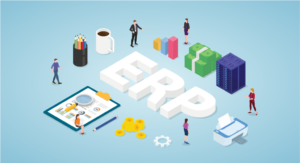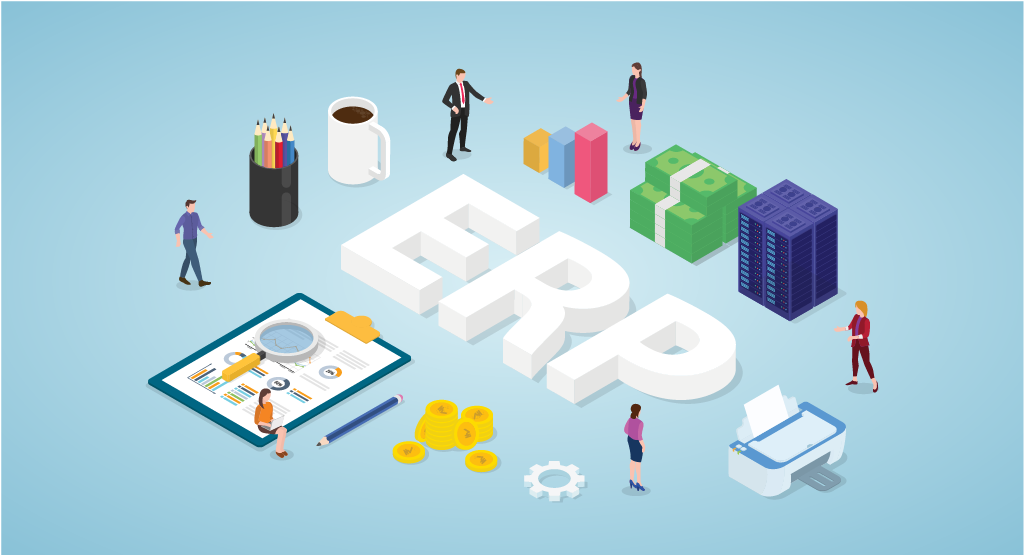Technology integration has become more crucial in the dynamic landscape of education. One such groundbreaking development is the incorporation of Augmented Reality (AR) coupled with Enterprise Resource Planning (ERP) systems. Imagine a classroom where textbooks come to life and learning transcends traditional boundaries. Let’s explore how the amalgamation of Augmented Reality and ERP reshapes education, making it more interactive, engaging, and efficient.

Unveiling the Blend: AR and ERP in Education
Augmented Reality is like a magic wand that enhances the real-world environment by overlaying digital information. When coupled with ERP for schools, it creates a seamless system for managing various aspects of educational institutions. From attendance tracking to resource planning, this blend offers a comprehensive solution for educators and administrators alike.
Navigating the Classroom Landscape
Augmented Reality in Teaching
Embrace a new era of teaching where complex concepts turn into interactive visualizations. AR in teaching transforms abstract ideas into tangible experiences, making learning a captivating journey.
ERP Revolution
Explore the backbone of the school management system. ERP streamlines administrative tasks, allowing educators to focus on what matters most – teaching. ERP is the compass guiding the educational ship from student information to financial management.
Building a Foundation for Enhanced Learning
Interactive Textbooks
Say goodbye to static textbooks. AR-infused textbooks make learning dynamic with 3D models and interactive simulations. Students can delve deeper into subjects, fostering a deeper understanding.
Virtual Campus Tours
ERP, when integrated with AR, offers virtual campus tours. Prospective students can explore facilities, classrooms, and recreational spaces from their homes. It’s like having an open house 24/7.
Personalized Learning Paths
Harness the power of ERP to tailor learning experiences. Educators can create personalized learning paths by analyzing student performance data, ensuring no student is left behind.
Streamlining Administrative Tasks
Attendance Tracking
Bid farewell to manual attendance registers. ERP automates attendance tracking, providing real-time data for better decision-making and ensuring a more secure learning environment.
Resource Allocation
Efficient resource allocation is the key to a well-functioning educational institution. ERP optimizes resource utilization, ensuring that classrooms, equipment, and staff are utilized to their full potential.
Timetable Management
Juggling timetables can be a logistical nightmare. ERP simplifies timetable management, considering faculty availability, room capacities, and student preferences to create an optimized schedule.
Overcoming Challenges in Implementation
Initial Investment Concerns
Let’s talk about the elephant in the room – the initial investment. While integrating AR and ERP requires an upfront investment, the long-term benefits of enhanced learning experiences and streamlined operations outweigh the costs.
Training and Adaptation
Navigate the learning curve. Educators and staff may initially find the integration challenging. However, with proper training and support, the transition becomes smoother, unlocking the full potential of AR and ERP.
Conclusion: Embracing the Future of Education
In conclusion, the marriage of Augmented Reality and ERP in education is not just a technological leap but a paradigm shift. It transforms traditional classrooms into interactive knowledge hubs, providing a personalized and efficient learning environment. Integrating AR and ERP is no longer a luxury but a necessity for modern schools.
Frequently Asked Questions
How does Augmented Reality benefit classroom teaching?
Augmented Reality in teaching brings abstract concepts to life, making learning more engaging and interactive.
What role does ERP play in school management?
ERP streamlines administrative tasks, from attendance tracking to resource allocation, allowing educators to focus on teaching.
Can AR and ERP be implemented in all educational institutions?
Yes, while there may be initial challenges, the adaptability of AR and ERP makes them suitable for various educational settings.
How does AR enhance personalized learning?
AR enables personalized learning through tailored, interactive experiences.
Are there any drawbacks to implementing AR and ERP in education?
While initial costs and a learning curve may exist, the long-term benefits outweigh any drawbacks. The key is proper planning and support during the implementation phase.


